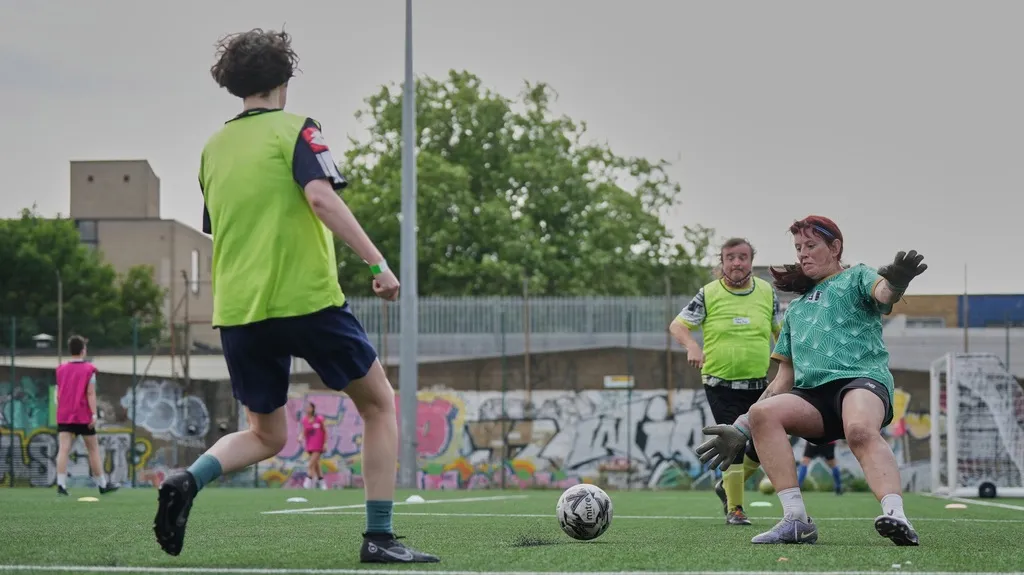October 8, 2013
Cocaine Makes You Vulnerable to HIV, But Marijuana Can Help In Treatment
Winnie McCroy READ TIME: 3 MIN.
New studies have indicated that while cocaine increases a users' susceptibility to HIV, cannabis could be useful as a therapeutic treatment for patients living with HIV.
According to a recent article in the Huffington Post, researchers at the University of California, Los Angeles, found that a specific type of immune cell becomes susceptible to HIV after cocaine use.
"Our studies focused on a unique population of immune cells (cells that constitute our body's defenses against infection), quiescent CD4 T cells, which can be targeted by HIV but are resistant to the virus," lead researcher Dr. Dimitrios Vatakis, co-director of UCLA's CFAR Virology Core Laboratory, told The Huffington Post. "We have shown that cocaine exposure sensitizes these cells and increases their susceptibility to infection."
In the study, researchers compared infected samples to healthy cells and found that HIV was enhanced in those cells dosed with cocaine over three days, suggesting that it not only makes them more susceptible, but that it could also hasten integration and growth of the virus.
Crack cocaine has also been linked to acceleration of the CD4 count, with the potential to progress to full-blown AIDS. UCLA's results come on the heels of another study at UC San Francisco's Ernest Gall Clinic and Research Center that revealed that cocaine may rewire the brain and affect decision making after just one use, by creating substantial growth of new dendritic spines, which are "tiny, twig-like structures that connect neurons and form the nodes of the brain's circuit wiring."
These "spines" rewire the brain to look for more cocaine. In the study, mice given cocaine in one less desirable chamber returned to the spot in search for more cocaine, choosing it over nicer accommodations.
"The co-epidemics of illicit drug use and infectious disease are well documented, though typically this connection is thought to occur through lifestyle choices and increased exposure," said John Wherry, Ph.D., Deputy Editor of the Journal of Leukocyte Biology. "What often does not come to mind is that drugs such as cocaine may be helping to fuel infections in this high-risk population by altering the immune system. These new studies are an important advance documenting how cocaine use may increase a person's vulnerability to HIV and further highlighting the need for improved education for both HIV prevention and drug abstinence."
Cocaine may be bad for HIV, but Sunil Kumar Aggarwal, M.D. Ph.D. said on Howcast.com that cannabis could be useful as a therapeutic treatment for patients who live with HIV. He cited a study at Columbia University in which inpatient hospitals used government-issued marijuana and were able to eat better, fighting wasting and reducing nausea.
"Treatment of burning pain, boosting appetite and helping gain weight, helping maintain adherence to your antiretroviral drugs are all benefits that marijuana can afford to HIV/AIDS patients," said Aggarwal.
He also cited a Stanford study that showed if you used cannabis, you would have two to four times higher rate of adherence to antiretroviral drugs.
Aggarwal also referred to research by Dr. Donald Abrams, the leading expert on the use of medical marijuana for HIV in San Francisco that showed that cannabis could battle HIV-related neuropathy, a painful, burning sensation in the limbs far better than any commercial meds. In addition, cannabis also helps with mood for those dealing with chronic illness.
Winnie McCroy is the Women on the EDGE Editor, HIV/Health Editor, and Assistant Entertainment Editor for EDGE Media Network, handling all women's news, HIV health stories and theater reviews throughout the U.S. She has contributed to other publications, including The Village Voice, Gay City News, Chelsea Now and The Advocate, and lives in Brooklyn, New York.


